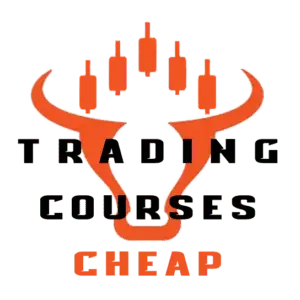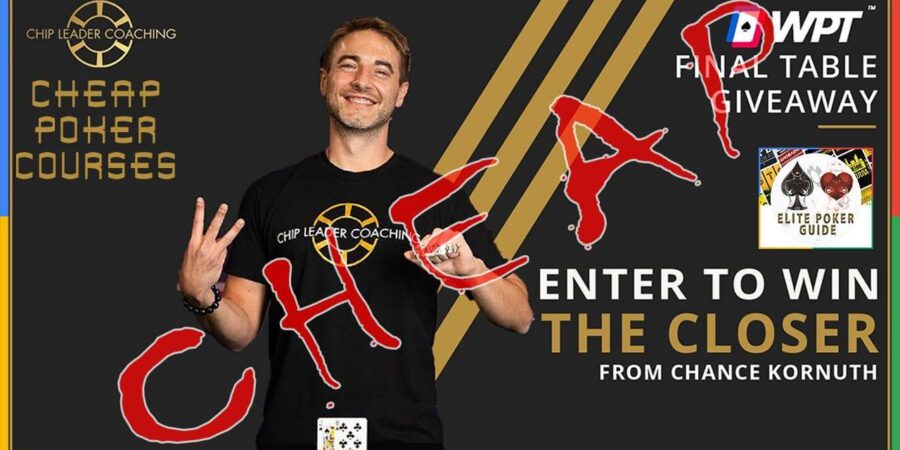What is a Chip Leader Coaching The Closer for Cheap?
The Chip Leader Story
CLC was founded by Chance Kornuth as the first live tournament coaching for profit program in poker. An innovative approach to poker coaching where instead of asking for an hourly payment up-front, a small percentage was taken from player winnings.
The coaching for profit program ran for 4 years and 120 players made over $12,000,000 winning multiple tournaments. One of those people was 2 time GPI 1st player in the world and now CLC coach Alex Foxen. We took the lessons we learned from the coaching for profit format and translated it into a world class live tournament curriculum and our two flagship products, The Closer and CL AI.
The Highlights of Team CLC
- Our coaches have made over $46,621,091 and won a combined total of 41 live & online tournaments.
- We have won practically every tournament event in poker. Including the WSOP Main, WPT, Aussie Millions.
- CL AI creator Alex Foxen is the number one GPI player in the world
- We ran one of the largest tournament staking operations and successfully taught 120 players our methods that resulted in $12,000,000+ in wins.
- We have experienced all the highs and lows of poker and built bankrolls from 0 to well over $10M+. Experience and Feedback + Technology
- ONLINE AND LIVE NO LIMIT TOURNAMENTS
A 10-week course focused on completely rebuilding the mindset, mechanics, and strategy necessary to win modern No Limit Hold ‘Em tournaments.
Learn the exact framework that was used to win over 67,000,000$ in tournaments and close more than 39 live events
🔸 PHASE 1 Frameworks and Foundation WEEK 1-4
GOAL Completely redesigning your mental and mechanical approach to tournaments
One of the common trends in poker is that players think there is just “one thing” that will lead to a massive change in their game. “If i can just study push/fold charts or grasp ICM I’ll be closing more tournaments etc. The reality is most players have a flawed approach to tournament poker and their foundation needs to be rebuilt. We aren’t going to dive in and start working on concepts without a solid foundation. Our first step is to get you to understand the big picture factors that go into closing tournaments. There are a series of key distinctions that separate the average player from those who consistently cash. Before we dive into the subtle aspects of tournament poker we are going to teach you to fully adopt and understand those principles.
▶️ SAMPLE: https://ok.ru/video/5182548085393
Use a FREE VPN. if the video isn’t working.
WEEK 1 The Master Framework for Closing Tournaments
The first week is all about understanding the approach we are going to take towards reconstructing your game. We will build a solid foundation that connects all concepts in poker and make sure you are set up to make this the most effective 10 week course you have ever taken.
The Mechanics, Mindset, Direction Framework
- The key framework that is used throughout The Closer. This is the foundation of the entire course and every single concept, question, and hand discussed will strengthen your understanding of this key framework.
The Mindset Framework
- The majority of players in your average field have big mental leaks that make it very difficult for them to actually win a tournament. In order to win you need to control your fear, emotions, and expectations.
The Ultimate Tournament Assessment
- Before you can build a new foundation you need to understand exactly where your current skill level stands. We start the program with an in-depth assessment of your goals, ambitions, and current tournament skill. This allows us to establish the reality of your circumstance and will help you design a strategy and approach to tournaments that are paired with your current skill set.
WEEK 2 The Foundation of Tournament Construction
Whether you realize it or not, every player has a certain level of construction. Some players study extensively and use solvers to construct ranges for multiple dynamics. Other players study a simple 10bb push/shove chart. The fact is most players are constructed incorrectly in tournament poker; something we will completely transform.
Construction and the 3-6 Phase Approach
- A 20bb stack is completely different from a 40bb stack. While some of this is intuitive most players have no idea how important stack size is when it comes to construction. We have broken down tournaments to 6 distinct phases and we will discuss how to build 3 different types of constructions for each phase. This ensures you will know exactly what to play and why at each level of the tournament.
The 3 Avatar Approach To Range Construction
- Poker is a dynamic game where a one size fits all approach doesn’t work. Instead of giving you a standard chart, we are going to show you the ideal construction for 3 different players who have different levels of skill, mindset, and experience. This approach allows you to see the dynamic aspect of construction and helps you understand the process for building ranges from the ground up.
The ICM/Chip EV Override
- While there are many standard spots in tournament poker, ICM can sometimes completely override your decision making process. We will discuss the foundation of ICM and more importantly go over the critical moments it should be applied.
WEEK 3 Sizing, Dynamic Betting, and Range Targeting
One of the biggest mistakes tournament players make is sizing. The difference between 2.5x and 3x may seem trivial, but it’s definitely not. Betting mistakes compound over time and the average player loses considerable EV through how they approach sizing. Week 3 is focused on transforming how you choose bet sizing in tournaments.
The Foundations of Sizing
- Most players can’t size correctly because they don’t understand the theoretical frameworks for sizing in tournament poker. We will discuss how to build a solid framework for correctly sizing so you know exactly what to bet and why.
Merging the Two Schools of Thought for Sizing
- When it comes to sizing, there are generally two schools of thought. You can go for short term EV or long term. This is a powerful distinction and we will spend ample time getting you to understand exactly when you should be switching between these two approaches to sizing.
How to Capitalize on the Most Common Sizing Mistakes
- After playing so many tournaments we have created a list of the most common sizing mistakes and how to attack them. This will show you exactly how to handle certain dynamics when you encounter them in addition to getting you to further understand why we size correctly.
WEEK 4 Shifting Gears, Constant Adjustment, and Mastering Direction
Tournaments are fundamentally about adjustment. You could be playing a 150bb+ stack one second and then one hand later you can be in push/fold mode. In week 4, we unify all the concepts so you can understand the subtle aspects of adjustment in poker and know exactly what to do and why at any moment in a tournament.
The Principle of Tournament Relativity
- Decision making in tournaments is not black and white. It’s highly relative. In order to close a tournament you need to understand their relative nature and know exactly how you should be adjusting and why.
Understanding The Stack/Proximity Continuum
- While there are many variables that are important for adjustment the two most critical are understanding your stack size and your proximity. These two concepts are used to calculate which mode we should be in and why.
Action Compass: A Framework for Understanding Adjustment at Game Speed
- Our action compass is a system we used to distill the macro principles in tournament poker to micro decisions. It’s a process you can go through that will help you recognize the right action for any specific moment in tournament poker.
🔸 PHASE 2 Application and Spot Drilling WEEK 5-8
GOAL – Start integrating our frameworks in actual spots.
Any major tournament win can be broken down into a series of “spots”. There are essential moments where you correctly Hero Call, or courageously risk your stack at the right time. If you ask the average player to break down one of these spots they will give you some sort of simple logic. Want to know how to make the right decision? You drill! You put yourself in that specific situation and develop a framework for how you make a decision. Then you drill. This is the type of work tournament players don’t do and it’s the type of work that allows you to make confident decisions in game when they matter most. Note* All Closer members get 3 month access to CL AI. We built an entire application called CL AI that is designed to do this.
WEEK 5 The Master Framework for Closing Tournaments
There is never going to be a tighter dynamic than the pre-bubble. A large percentage of the field wants to “just cash” creating an opportunity that you must seize. In week 5, we will go over exactly how to attack the bubble by breaking down real spots from bubble play.
WEEK 6 The Post Bubble Switch
As soon as the bubble bursts the dynamic considerably changes. Players are comfortable taking more risks and there is a considerable difference in play. In week 6, we learn how to take advantage of this dynamic by deconstructing real spots in the post bubble dynamic.
WEEK 7 Going Deep and Dominating
Going deep in tournaments creates a mixture of excitement and fear. One of the most interesting aspects about going deep is that most players will rarely experience it. Deep runs don’t happen everyday and when they do you want to be ready. In week 7, we will dissect multiple hands from deep runs.
WEEK 8 The Final Table: Mindset, Mechanics, and Maniacs
You have finally arrived. You applied the frameworks of The Closer and you are now at a final table. You have massive pay jumps, multiple game dynamic factors to consider, in addition to the psychological pressure of being on the brink of closing an event. In week 8, we will focus on the decision making and frameworks required in all final table dynamics so that you are fully prepared to close your next final table.
🔸 PHASE 3 Further Reinforcement and Your Questions Answered WEEK 9-10
GOAL – Further reinforce the principles of The Closer and make sure every question/concern you have is answered
Any major tournament win can be broken down into a series of “spots”. There are essential moments where you correctly Hero Call, or courageously risk your stack at the right time. If you ask the average player to break down one of these spots they will give you some sort of simple logic. Want to know how to make the right decision? You drill! You put yourself in that specific situation and develop a framework for how you make a decision. Then you drill. This is the type of work tournament players don’t do and it’s the type of work that allows you to make confident decisions in game when they matter most. Note* All Closer members get 3 month access to CL AI. We built an entire application called CL AI that is designed to do this.
WEEK 9 The Final Table Revealed [Bonus]
In order to really connect the concepts in the Closer, Alex and Chance conducted a complete dissection of Alex’s 2019 WPT 5 Diamond Main Event victory for $1.7M. They cover every spot and explain the exact reason for each decision. Week 9 will show you how the best in the world implement this process and will be an eye opening experience.
WEEK 10 The Most Extensive Tournament Poker Q&A
There is no way you won’t have questions throughout the course. In addition to the recorded workshops we save this part for last. Once you learn the framework you will be able to see tournament poker in richer detail and will definitely have deeper questions. Week 10 is designed to be an ongoing archive of questions that you can come back to anytime.
Frequently Asked Questions
- Is this good for both online and live tournaments?
Yes! The Closer was created with both live and online tournaments in mind.
- How much work is required each week?
It should take on average 2-3 hours of work per week. However, with the workshops and CL AI, you can do as much as 20+ hours a week on your game. We suggest setting aside 1 hour a day, 5 days a week for the duration of the course.
INDEX
Chip Leader Coaching The Closer WEEK1
P1 Introduction
1.Welcome to the closer.mkv
2.The goals of the closer.mkv
3.How to get the most out of this experience.mkv
P2 The master framework
4.the master framwork of the closer.mkv
P3 Mindset
5.self awareness.mkv
6.emotional control.mkv
7.perception and extemal observation.mkv
8.Intention.mkv
P4 The tournament assessment
10.the raw reality of your results.mkv
11.tournament goals and ambitions.mkv
12.tournament mechanics assessment.mkv
13.tournament mental game assessment.mkv
9.the tournament assessment.mkv
P5 Application and a candid discussion
14.what is required to close tournaments in todays game.mkv
Chip Leader Coaching The Closer WEEK2
P1construction
5.understanding how to create a baseline construction.mkv
6.the phases of tournament construction.mkv
7.post flop construction.mkv
8.an important note about crafting your construction.mkv
P2test what you learned
P3application and a candid discussion
14a candid discussion on consturction.mkv
Chip Leader Coaching The Closer WEEK3
P1 an introduction to sizing
1.the importance of sizing in tournaments.mkv
2.the foundations of sizing.mkv
3.formula for bet sizing.mkv
4.capitalizing on the common sizing mistakes.mkv
P2 Sizing applied
10.sizing spot6 88.mkv
11.sizing spot7 77.mkv
5.sizing spot1 AK.mkv
6.sizing spot2 AK.mkv
7.sizing spot3 AK.mkv
8.sizing spot4 A8.mkv
9.sizing spot 5 T8.mkv
Chip Leader Coaching The Closer WEEK4
P1 mastering direction and unifying the framework
1.Adjustment Relativity and closing tournaments.mkv
P2 our compass
2.stack and proximity.mkv
3.the 4 actions.mkv
4.Player dynamics.mkv
5.the mindset war.mkv
P3spot and example
Chip Leader Coaching The Closer WEEK5
P1 pre bubble spots overview
1.the pre bubble spots overview.mkv
2.Know your image prebubble.mkv
P2 the hand breakdowns
10.prebubble hand8.mkv
11.prebubble hand9.mkv
12.prebubble hand10.mkv
13.prebubble hand11.mkv
13prebubble hand11-2.mkv
3.prebubble hand 1.mkv
4.prebubble hand2.mkv
5.prebubble hand3.mkv
6.prebubble hand4.mkv
7.prebubble hand5.mkv
8.prebubble hand6.mkv
9.prebubble hand7.mkv
WEEK6
P1 post bubble spots overview
1.the post bubble spots overview.mkv
2.Know your image postbubble.mkv
P2 the hand breakdowns
10.postbubble hand8.mkv
11.postbubble hand9.mkv
12.postbubble hand10.mkv
13.postbubble hand11.mkv
3.postbubble hand 1.mkv
4.postbubble hand2.mkv
5.postbubble hand3.mkv
6.postbubble hand4.mkv
7.postbubble hand5.mkv
8.postbubble hand6.mkv
9.postbubble hand7.mkv
WEEK7
P1 Running deep spots overview
1.running deep spots overview.mkv
2.know your image running deep.mkv
P2 the hand breakdowns
10.running deep hand 8.mkv
11.running deep hand 9.mkv
12.running deep hand 10.mkv
13.running deep hand 11.mkv
3.running deep hand 1.mkv
4.running deep hand 2.mkv
5.running deep hand 3.mkv
6.running deep hand 4.mkv
7.running deep hand 5.mkv
8.running deep hand 6.mkv
9.running deep hand 7.mkv
WEEK8
P1 final table spots overveiw
1.the final table spot overview.mkv
2.Know your image final table.mkv
P2 the hand breakdowns
10.final table spot 8.mkv
11.final table spot 9.mkv
12.final table spot 10.mkv
13.final table spot 11.mkv
14.final table spot 12.mkv
15.final table spot 13.mkv
16.final table spot 14.mkv
17.final table spot 15.mkv
18.final table spot 16.mkv
19.final table spot 17.mkv
20.final table spot 18.mkv
21.final table spot 19.mkv
22.final table spot 20.mkv
3.final table spot 1.mkv
4.final table spot 2.mkv
5.final table spot 3.mkv
6.final table spot 4.mkv
7.final table spot 5.mkv
8.final table spot 6.mkv
9.final table spot 7.mkv
WEEK9
FINAL table review 17.mkv
WEEK10
Q1.mkv
Q11.mkv
Q10.mkv
Q12.mkv
Q2.mkv
Q3.mkv
Q4.mkv
Q5.mkv
Q6.mkv
Q7.mkv
Q8.mkv
Q9.mkv
💬 Feel free to reach out to our CHAT support for personalized assistance and detailed information tailored to your needs. We’re here to help!






